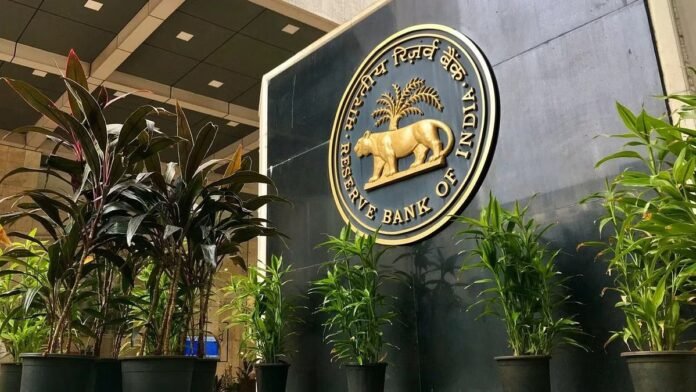Seeking the Best Private Student Loan Interest Rate: A Comprehensive Guide
For students embarking on the journey of higher education, finding the best private student loan interest rate is a crucial step towards managing educational expenses effectively. As tuition costs continue to rise, securing a competitive interest rate can significantly impact your financial well-being throughout your academic journey and beyond. This comprehensive guide will walk you through the key factors to consider when searching for the best private student loan interest rate.
Understanding Private Student Loans
Private student loans are financial tools designed to help students cover the costs of education, including tuition, fees, books, and living expenses. Unlike federal student loans, which are backed by the government, private student loans are offered by private lenders, such as banks, credit unions, and online lenders. As a result, interest rates for private student loans can vary widely based on various factors.
Factors Affecting Private Student Loan Interest Rates
- Credit Score: Your credit score is a significant determinant of the interest rate you’ll receive. A higher credit score typically translates to a lower interest rate. Lenders use your credit score to assess your creditworthiness and the risk associated with lending to you.
- Co-Signer: Some lenders allow you to apply with a co-signer, typically a parent or guardian with a strong credit history. A co-signer’s creditworthiness can positively impact the interest rate you’re offered.
- Loan Term: The length of your loan term can influence the interest rate. Shorter loan terms might come with lower interest rates but higher monthly payments, while longer terms might have higher rates but more manageable monthly payments.
- Loan Amount: The loan amount you’re seeking can also affect the interest rate. Some lenders offer tiered interest rates based on the loan amount, with larger loans potentially qualifying for lower rates.
- Lender Policies: Each lender has its own underwriting criteria and policies, which can influence the interest rates they offer. Shopping around and comparing offers from different lenders is essential to find the best rate.
Tips for Securing the Best Interest Rate
- Build and Maintain Good Credit: Improving your credit score by paying bills on time and managing your credit responsibly can lead to more favorable interest rates.
- Consider a Co-Signer: If you have a limited credit history, applying with a creditworthy co-signer can help you qualify for a better interest rate.
- Shop Around: Don’t settle for the first offer you receive. Compare interest rates and terms from multiple lenders to find the most competitive option.
- Choose Fixed or Variable Rate: Decide between a fixed interest rate, which remains constant throughout the loan term, and a variable rate, which can change over time. Each option has its pros and cons, so choose based on your risk tolerance.
- Evaluate Loan Terms: Understand the impact of different loan terms on your monthly payments and overall cost. Select a term that aligns with your financial goals.
Online Tools and Resources
To streamline your search for the best private student loan interest rate, consider utilizing online tools and resources. Various websites offer loan comparison tools that allow you to input your information and receive personalized rate quotes from multiple lenders. These tools can save you time and effort while helping you make an informed decision.
Frequently Asked Questions About Private Student Loan Interest Rates
In this section, we address some commonly asked questions about private student loan interest rates.
1. What is a private student loan interest rate?
A private student loan interest rate is the percentage that lenders charge on the amount you borrow for educational expenses. It determines the cost of borrowing and affects the overall amount you’ll repay over the loan term.
2. How do private student loan interest rates differ from federal student loans?
Private student loan interest rates are set by private lenders and can vary based on factors such as your credit history, loan terms, and the lender’s policies. Federal student loan interest rates, on the other hand, are determined by the government and are the same for all borrowers.
3. What factors influence my private student loan interest rate?
Several factors can impact your private student loan interest rate:
- Credit Score: A higher credit score usually leads to a lower interest rate. Lenders view borrowers with better credit scores as less risky.
- Co-Signer: Having a creditworthy co-signer can help you secure a lower interest rate if you have limited credit history.
- Loan Term: The length of the loan term can affect your interest rate. Shorter terms may have lower rates but higher monthly payments.
- Loan Amount: Some lenders offer tiered rates based on the amount borrowed. Larger loans may qualify for lower rates.
- Lender Policies: Each lender has its own policies that influence the rates they offer.
4. Should I consider applying with a co-signer?
If you have a limited credit history or lower credit score, applying with a creditworthy co-signer can improve your chances of getting approved for a loan and securing a lower interest rate. A co-signer is someone who agrees to share responsibility for the loan if you’re unable to make payments.
5. Is it important to compare interest rates from different lenders?
Yes, comparing interest rates from different lenders is essential. Interest rates can vary significantly between lenders, and even a small difference in rate can result in substantial savings over the life of the loan.
6. What’s the difference between fixed and variable interest rates?
A fixed interest rate remains constant throughout the loan term, providing predictability in your monthly payments. A variable interest rate, on the other hand, can change periodically, leading to fluctuations in your monthly payments based on market conditions.
7. How do I evaluate loan terms?
When evaluating loan terms, consider your financial situation and goals. A shorter term might have higher monthly payments but lower overall costs, while a longer term could mean more manageable payments but higher total costs.
8. Are there online tools to help me compare interest rates?
Yes, there are online tools available that allow you to compare interest rates from various lenders. These tools can help you easily explore different options and find the most competitive rate for your needs.
9. Why is finding the best private student loan interest rate important?
Finding the best interest rate is important because it directly affects the total amount you’ll repay over the life of the loan. A lower interest rate can save you money and make your loan more affordable.
Conclusion
Securing the best private student loan interest rate requires careful consideration of your financial situation, credit history, and loan preferences. By understanding the factors that influence interest rates and following the tips outlined in this guide, you can navigate the lending landscape with confidence. Remember that finding the right interest rate can have a lasting impact on your financial well-being, making the effort to secure the best rate well worth your time and research.


